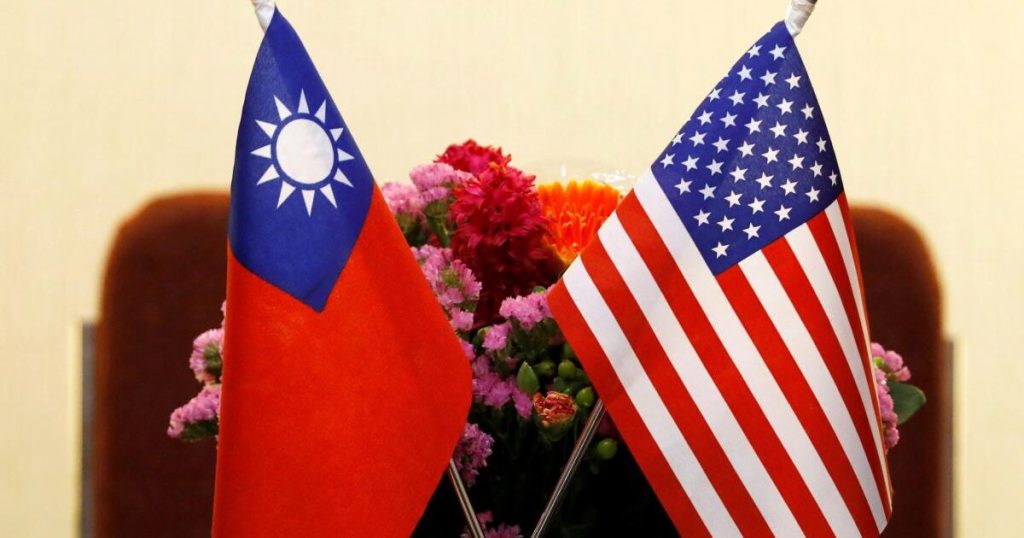

This week, Beijing expressed anger and threatened retaliation over several developments: U.S. restrictions on chip exports, U.S. arms sales to Taiwan, and a visit by Taiwan’s President, Lai Ching-te, to Hawaii.
Beijing should remember that the U.S. is a sovereign nation, fully within its rights to impose export restrictions, provide support and weapons to Taiwan and to host visiting heads of state. Trump will undoubtedly remind Xi Jinping of this fact.
China has vowed “resolute countermeasures” in response to a U.S. arms sale to Taiwan, worth an estimated $385 million, for spare parts and support for F-16 jets and radars. Beijing also criticized the U.S. for allowing Taiwan’s President Lai Ching-te to transit through Hawaii and Guam during his visit to Pacific allies. China’s foreign ministry condemned the arms sale as sending the “wrong signal” to Taiwan independence forces and opposes any official U.S.-Taiwan exchanges.
The U.S., despite lacking formal ties with Taiwan, is legally required to provide the island with defensive capabilities, a stance that continues to provoke Beijing. Taiwan, meanwhile, rejects China’s sovereignty claims.
Tensions between the U.S. and China are escalating as Beijing threatens “necessary actions” in response to potentially stricter U.S. restrictions on chip exports. China’s Commerce Ministry denounced the anticipated measures, calling them an “abuse” of control that targets Chinese tech companies and restricts access to vital semiconductor technology. The U.S. claims the sanctions are necessary for national security to prevent the misuse of American technology for military purposes.
The Biden administration is reportedly preparing to expand restrictions on semiconductor equipment and AI memory chips, while also updating its export blacklist to include more Chinese firms. Although some exclusions, such as ChangXin Memory Technologies, are being considered, the rivalry over chip technology continues to deepen.
This “chip war” has seen the U.S. impose increasingly stringent sanctions and China invest billions in developing domestic chip-making capabilities. Both nations remain locked in a high-stakes standoff, with China signaling it will no longer passively accept tightening U.S. restrictions.
Beijing’s history of anger and threats has grown increasingly pronounced, with its outrage intensifying over recent U.S. actions targeting Chinese firms.
In August, Beijing condemned U.S. sanctions targeting dozens of Chinese companies accused of supporting Russia’s invasion of Ukraine. China’s Ministry of Commerce criticized the measures as unilateral actions and “long-arm jurisdiction” that disrupt international trade and global supply chains. The U.S. had added 123 entities, including 42 in China, to its export control list, describing them as shell companies aiding Russia’s war effort. This move was part of a broader crackdown, with over 1,056 entities added to the list since Russia’s invasion in February 2022. Beijing vowed to take “necessary measures” to protect the rights of Chinese enterprises, further escalating tensions between the two nations.
Xi Jinping constantly emphasizes how China respects the sovereignty of other nations and avoids interfering in their internal affairs. Yet, whenever the U.S. makes a domestic decision that goes against China’s interests, Xi becomes outraged. The irony is, there’s little China can actually do to punish the U.S. Back in September, Beijing sanctioned ten U.S. executives at three American firms over arms sales to Taiwan—but the companies didn’t even notice.
By contrast, when the U.S. sanctions China, the impact is significant. U.S. export controls, for example, have restricted China’s access to advanced technologies. Over the past four years, the U.S. has focused on collaborating with allies and adopting a broader de-risking strategy to reduce dependence on China for critical goods and prevent bolstering its military capabilities.
While France and Germany have somewhat undermined the U.S. decoupling efforts, Eastern European countries have become increasingly hawkish, particularly after China’s support for Russia’s invasion of Ukraine. Moreover, the fact that U.S. sanctions are supported, at least in part, by a coalition of nations, such as the EU, amplifies their impact. In contrast, China lacks a similar bloc to counterbalance U.S. actions, reducing its retaliatory threats to little more than loud, unpleasant noise.
Recently, the U.S. sanctioned two Chinese companies, Xiamen Limbach Aircraft Engine Co. and Redlepus Vector Industry Shenzhen Co., for supplying drones to Russia for use in its war on Ukraine. These companies were accused of collaborating with Russian defense firms to produce and deliver the “Garpiya series” long-range drones used in attacks on Ukraine’s infrastructure. This marks the first time the U.S. has penalized Chinese entities for directly developing and producing arms in partnership with Russia. The timing is significant, as the incoming Trump administration is highly likely to impose secondary sanctions on China—and potentially Turkey and India—for bypassing U.S. sanctions on Russia or other countries.
The post China’s Anger at the U.S.: A Loud, Unpleasant Noise appeared first on The Gateway Pundit.






